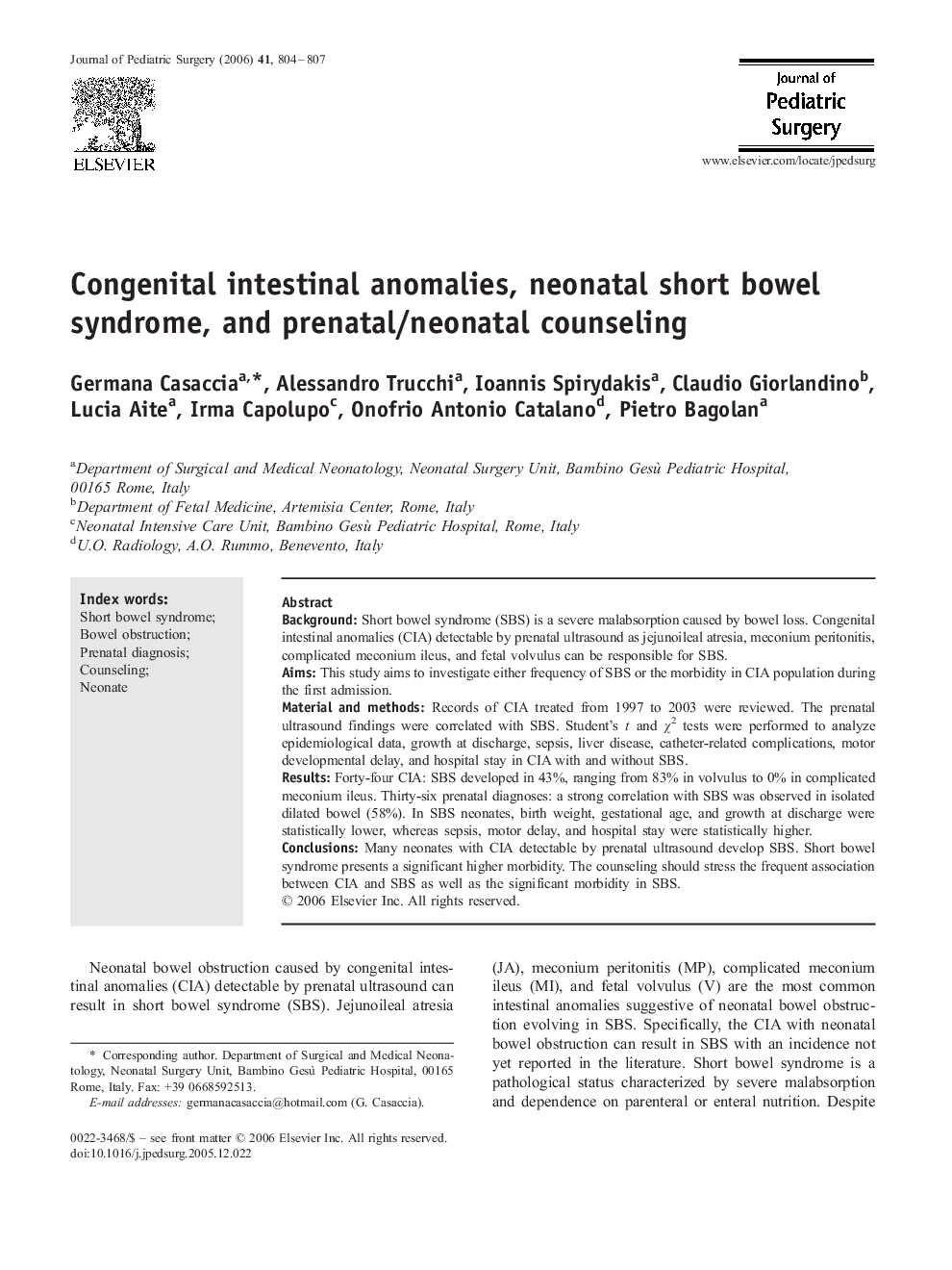| Article ID | Journal | Published Year | Pages | File Type |
|---|---|---|---|---|
| 4160617 | Journal of Pediatric Surgery | 2006 | 4 Pages |
BackgroundShort bowel syndrome (SBS) is a severe malabsorption caused by bowel loss. Congenital intestinal anomalies (CIA) detectable by prenatal ultrasound as jejunoileal atresia, meconium peritonitis, complicated meconium ileus, and fetal volvulus can be responsible for SBS.AimsThis study aims to investigate either frequency of SBS or the morbidity in CIA population during the first admission.Material and methodsRecords of CIA treated from 1997 to 2003 were reviewed. The prenatal ultrasound findings were correlated with SBS. Student's t and χ2 tests were performed to analyze epidemiological data, growth at discharge, sepsis, liver disease, catheter-related complications, motor developmental delay, and hospital stay in CIA with and without SBS.ResultsForty-four CIA: SBS developed in 43%, ranging from 83% in volvulus to 0% in complicated meconium ileus. Thirty-six prenatal diagnoses: a strong correlation with SBS was observed in isolated dilated bowel (58%). In SBS neonates, birth weight, gestational age, and growth at discharge were statistically lower, whereas sepsis, motor delay, and hospital stay were statistically higher.ConclusionsMany neonates with CIA detectable by prenatal ultrasound develop SBS. Short bowel syndrome presents a significant higher morbidity. The counseling should stress the frequent association between CIA and SBS as well as the significant morbidity in SBS.
